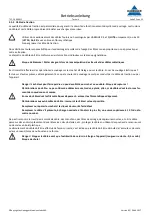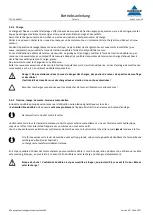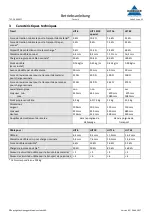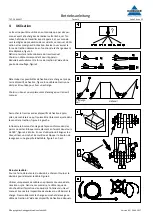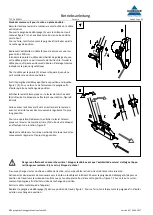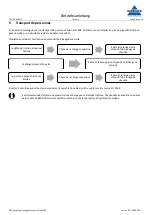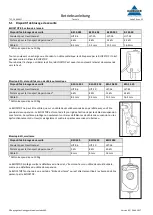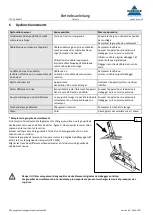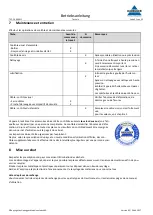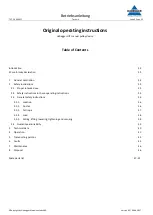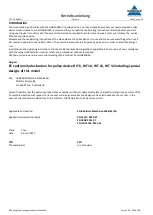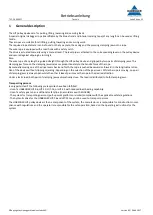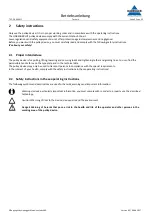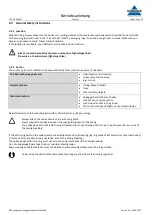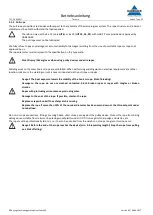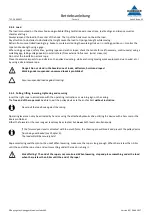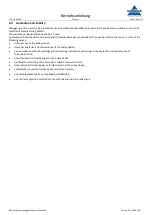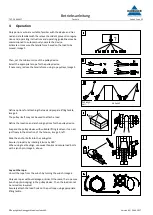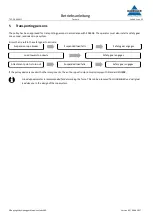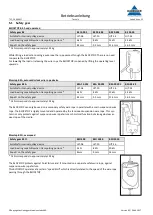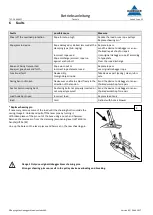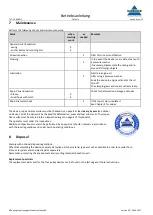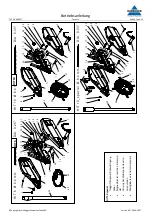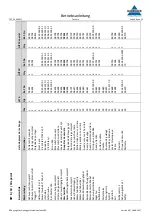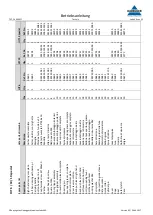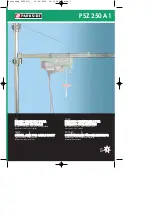
Betriebsanleitung
TGT, 26.06.2017
Technik
Seite 34 von 52
©Copyright by Habegger Maschinenfabrik AG
Version 03 / 26.06.2017
1
General description
The HIT pulley devices are for pulling, lifting, lowering and securing loads.
A special original Habegger rope (identifiable by the blue strand and interior marking tape) of any length can be used as lifting
tackle.
These ropes are suitable for all lifting, pulling, lowering and securing work.
The required rope diameter can be found on the type plate, the casing and the pressing clamping jaw on the rope.
The wire rope is equipped with a load hook with a safety catch.
The drive is actuated manually using a manual lever. The level pipe is attached to the corresponding lever on the pulley device
and secured against slipping by turning it.
Role:
The wire rope of any length is guided straight through the HIT pulley device and gripped by two pairs of clamping jaws. The
clamping jaw force on the clamping jaws increases proportionately to the tensile force of the rope.
By manually moving one of the drive levers back and forth, the rope is pushed backward or forward in the longitudinal direc-
tion of the device without slipping or jerking, depending on the selection of the gear lever. While the rope is moving, one pair
of clamping jaws is always open while the other (closed) pair moves the rope in the desired direction.
Under a static load, both pairs of clamping jaws automatically close. The load is distributed to both clamping jaws.
Transporting persons
Is only permitted if the following prerequisites have been fulfilled:
- Use of a HABEGGER HIT-06, HIT-10, HIT-16, or HIT-32 with reduced load-bearing capability
- Use of a safety gear on an additional safety line (in accordance with EN 1808)
- The system for transporting persons (pull-up work platform or similar) complies with the applicable safety regulations.
- The hydraulic drive for the HABBEGER HIT-16 and HIT-32 may not be used to transport persons.
The HABEGGER HIT pulley device is then a component of the system; the manufacturer is responsible for construction in com-
pliance with regulations and the operator is responsible for the safe operation, based on the operating instructions for the
system.



